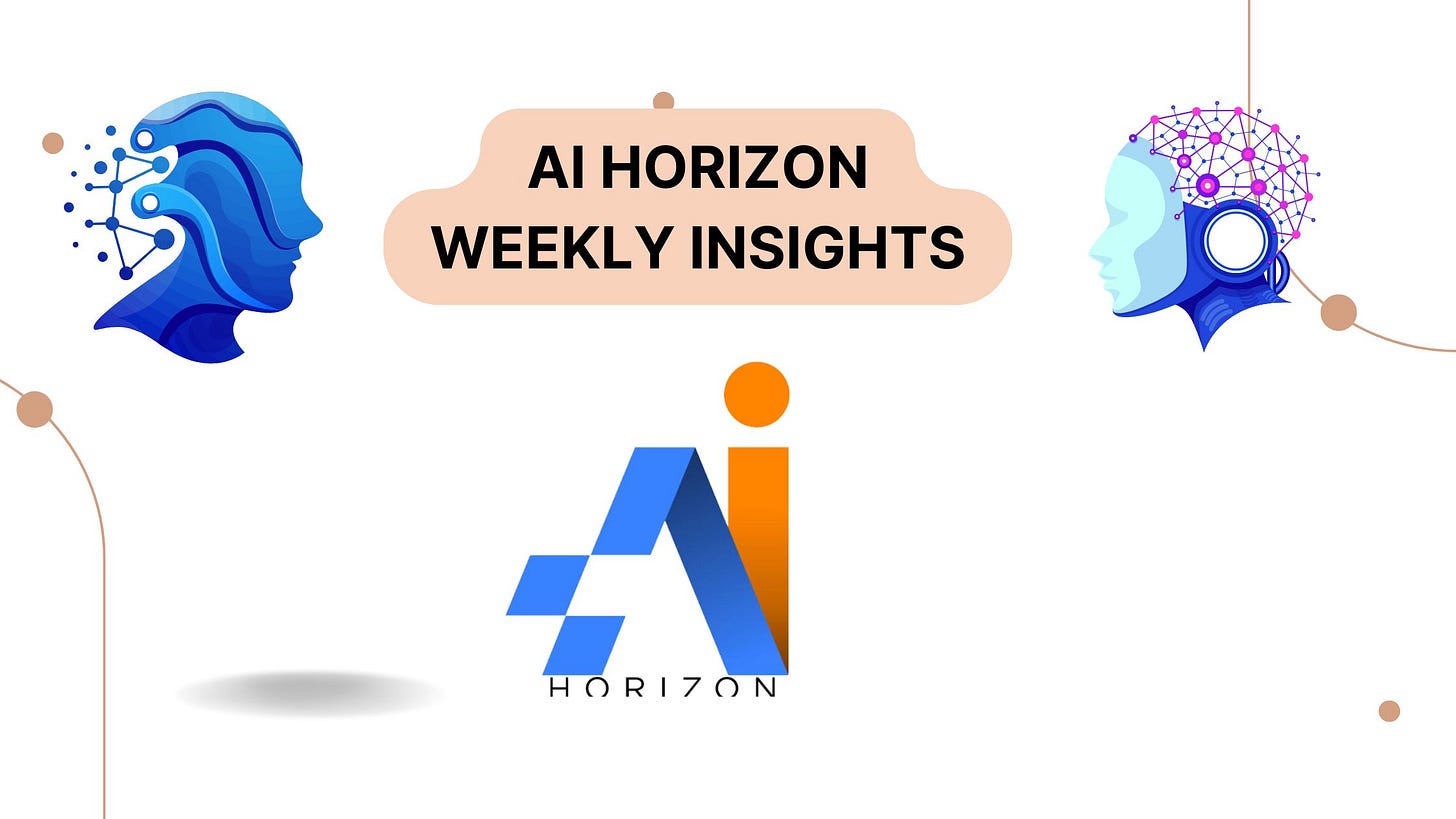Welcome to your weekly AI Dispatch! 🚀 Here’s a bite-sized tour of 14 groundbreaking developments—from cloud-powered coding copilots to ethical calls from the papacy—all in one place. Grab your ☕ and let’s dive in!
🚀 OpenAI’s Codex: The Cloud-Based Coding Revolution
OpenAI has rolled out Codex, powered by the specialized codex-1 model (a variant of the o3 architecture), to write features, fix bugs, answer codebase questions, and run tests—all within secure cloud environments and guided by AGENTS.md instructions. Initially live for ChatGPT Pro, Enterprise, and Team subscribers (with Plus and Education on the way), Codex promises to automate tedious engineering workflows and boost developer productivity.
🎥 AI-Powered Ads: YouTube’s Peak Points & Netflix’s Visual Blends
YouTube Peak Points uses Gemini AI to identify and target emotionally charged “peak” moments in videos for ad placements—maximizing engagement right after the most impactful scenes.
Netflix unveiled interactive mid-roll and pause ads that weave brand creative into show-inspired visuals, complete with click-through overlays, slated to roll out in late 2025.
🤝 AI Agents Mimic Human Societies
A study from the University of London demonstrates that AI agents, playing “naming games,” spontaneously develop shared social conventions and norms without central coordination—mirroring how human cultures evolve and shift.
🛠️ Windsurf’s SWE-1: Beyond Code Generation
Windsurf introduced SWE-1 (with lite and mini variants), a family of models designed for the entire software engineering lifecycle—coding in editors, terminals, and browsers—enabled by a “flow awareness” system that tracks errors and context seamlessly.
💬 LLMs Struggle in Multi-Turn Conversations
New research by Microsoft and Salesforce reveals a steep drop—from 90% to just 60%—in LLM performance when tasks stretch across multiple conversational turns, highlighting a critical need for improved context management in dynamic dialogues.
🔬 Google’s AlphaEvolve: Coding for Science and Efficiency
DeepMind’s AlphaEvolve, powered by Gemini and evolutionary strategies, has outperformed the 56-year-old Strassen algorithm on certain matrix multiplication tasks and matched state-of-the-art solutions on dozens of open math problems—signaling AI’s growing role in scientific discovery.
🛡️ Anthropic’s Next-Gen Claude
Anthropic is preparing Claude Sonnet and Opus upgrades with hybrid reasoning and expanded tool use, alongside “Neptune,” which is in safety testing and backed by a bug bounty program—underscoring the company’s commitment to robust, autonomous error fixing in code.
📸 FaceAge: AI Predicts Cancer Outcomes from Photos
Researchers at Mass General Brigham unveiled FaceAge, an AI that estimates biological age from facial images and improves physicians’ six-month cancer survival predictions when combined with clinical data—offering a non-invasive prognostic tool with real clinical impact.
🧠 Sakana AI’s Continuous Thought Machines
Continuous Thought Machines (CTMs) from Sakana AI mimic step-by-step, brain-like processing by synchronizing neuron-level “timing information,” enabling them to tackle complex mazes and nuanced image recognition tasks with adaptive effort.
🌐 Gemini Expands: Google’s AI Assistant Goes Everywhere
Google is embedding Gemini into Wear OS smartwatches, Android Auto vehicles, Google TV, and the upcoming Android XR headset—aiming for seamless, voice-driven experiences across your tech ecosystem.
🌟 OpenAI’s Vision for AGI and Open-Source AI
In a recent Nature interview, OpenAI’s chief scientist Jakub Pachocki predicted AGI by decade’s end—defined by measurable economic and research impacts—and announced plans to release an open-weight model, aiming to democratize advanced AI while balancing safety.
🌎 Trump Admin Rescinds Semiconductor Export Rule
The Trump administration scrapped a Biden-era rule restricting AI chip exports, opting instead for new country-specific agreements while maintaining China bans—an about-face intended to spur innovation and streamline industry regulations.
🤝 OpenAI-Microsoft Partnership Faces Tensions
According to Reuters, OpenAI plans to reduce Microsoft’s revenue share from 20% to 10% by 2030 during upcoming restructuring talks, even as Microsoft seeks guaranteed long-term access to OpenAI’s tech—highlighting friction in one of the tech world’s most pivotal alliances.
⛪️ Pope Leo XIV: AI as a Moral Challenge
In his inaugural address, Pope Leo XIV—making history as the first American pontiff—warned that AI poses profound questions for human dignity, justice, and labor, echoing calls for international treaties to govern responsible AI development.
Boost your productivity and expand your knowledge with our curated collection of AI tools, tutorials, and guides—all in one place. Whether you’re a novice or an expert, you’ll find actionable insights and step-by-step walkthroughs to accelerate your learning journey.
That's all for now! Stay tuned for more exciting updates next week. Keep innovating, and remember, the future is now! 🌟👋
Stay curious, stay inspired,
Together, we're not just witnessing the future; we're creating it. Stay tuned for more insights and stories in our next edition! 🌟🛠️
🚀 Unlock daily AI insights with AI Horizon for free! Get cutting-edge trends and smart strategies straight to your inbox. Subscribe now and lead the AI revolution.






